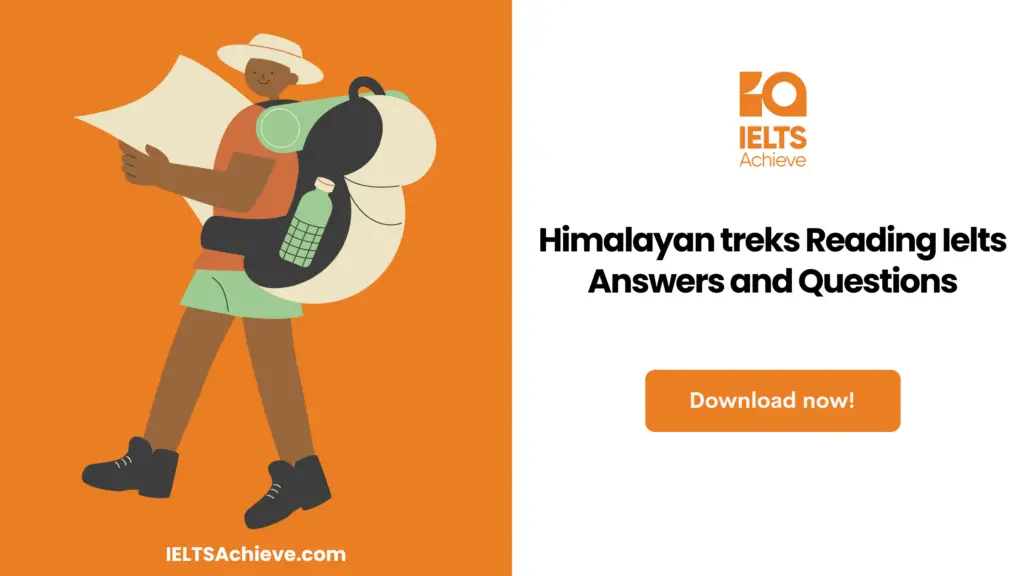
In this post, we will be looking at matching features.
In the IELTS Reading Test, you could be given questions that ask you to match features, often with texts that include theories or comments about people, places, years and things. To comprehend how to complete these questions, you need to be able to skim read.
The questions will not be ordered in the same way as the given text, the various options will be presented in a box and you will match them to the questions. There will be paraphrased information and more questions are given than needed to complete the task.
EXERCISE 1
The paragraphs for this practice exercise is from a text called “Giving blood in a time of crisis” from The World Health Organisation (WHO) website.
Read the questions, skim read the following text, and look for the important details;
Prakash Ghimire was just leaving his home in Kathmandu to travel to the airport when the shaking started.
Within a minute, a massive 7.8 magnitude earthquake – the worst to strike the region in more than 80 years – had laid waste to large parts of the city, wreaking destruction that would leave about 9000 people dead and another 22 000 injured.
Half an hour later, Dr Ghimire, a national professional officer at WHO’s country office in Nepal, was at the Health Ministry to join the team assembled at the health emergency operation centre. He was put in charge of coordinating the blood transfusion services, including the availability of blood and blood products in earthquake response operations.
“Immediately after the earthquake, we assembled and started taking stock of what had happened,” he says.
An initial assessment revealed extensive damage to the nation’s blood supply infrastructure. Out of about 100 blood transfusion centres, 9 were completely destroyed and 21 were partially damaged. The Central Blood Transfusion Service building in Kathmandu had large cracks in its walls and was deemed structurally unsound.
There were also deaths and injuries at two of the sites carrying out blood collection activities that day. One Nepal Red Cross staff member, one volunteer and seven donors had died, and others remained trapped in a collapsed donation centre, awaiting rescue.
But Nepal had long feared a devastating earthquake and had made some preparations. The country’s first solar-powered emergency blood transfusion service centre had been inaugurated just five days before the earthquake struck. The designers had predicted that power would be a significant problem after a natural disaster; the rooftop solar panels meant that this was not an issue.
Match the features >>
- Prakash Ghimire
- Dr Ghimire
- Nepal
A. A nurse
B. Place of the earthquake
C. a doctor
D. a blood donor
E. Earthquake victim
Answers are at the bottom of the page.
Exercise 2
The paragraphs for this practice exercise is from a text called “Forgetting to wash your hands can cost lives“ from The World Health Organisation (WHO) website.
Read the questions, skim read the following text, and look for the important details;
When Bandana Das, a midwife in India, washes her hands it is not simply routine, it is a critical step in reducing infection and saving the lives of mothers and newborns.
“I have seen mothers discharged from the health facility and then come back to the same facility with severe infections and high temperatures,” says Bandana, the president of the Society of Midwives in India. “Many of these mothers do not survive.”
Worldwide, 30 000 women and 400 000 babies die every year from infections, such as puerperal sepsis, often caused by lack of water, sanitation and poor hand-washing practices. In an era of antimicrobial resistance, it is crucial that all midwives wash their hands at key moments – before and after touching a patient, before medical procedures, and after being exposed to bodily fluids.
However, up to 70% of health workers do not adhere to recommended hand hygiene practices, according to WHO.
In India and many low- and middle-income countries, practising good hand hygiene is not easy. Bandana, like many midwives in India, often does not have access to water, a toilet, or soap.
“In some places, water has been so dirty it is unusable,” she says. “It is very difficult to practice good hygiene in these circumstances.”
According to a WHO and UNICEF report, more than 1 in 3 health facilities in low- and middle-income countries do not have any access to water at all. When the reliability, safety, and distance of the water supply is taken into account, that ratio increases to 1 in 2.
Lack of water is only one challenge. Nearly 1 in 5 of these facilities do not have toilets and more than 1 in 3 does not have soap for hand washing. Clean water, functioning toilets and soap are all essential to protecting the lives of mothers and newborns during the time of birth.
Match the features >>
- WHO and UNICEF
- Bandana Das
- Health workers
A. leads the way in good hygiene practices in India
B. wrote a report about the shortage of midwives in India
C. communicated information about some places having no water
D. often do not clean their hands
E. Performed tests on the water in India
Answers are at the bottom of the page.
REVIEW AND STRATEGY
The matching features questions are common in the IELTS Reading Test, therefore you should practice and develop a strategy for answering.
TIP >> Read the instructions before you start reading the text. Make sure you understand what the question is asking you to do.
TIP >> Read the names/ places first and scan the text to find them. You can underline/highlight them – they may be mentioned more than once.
TIP >> Look for the connection between their name and what they have achieved etc, that relates to the options. Be wary of synonyms and paraphrasing.
TIP >> Choose your answers through an elimination process. Which ones do not fit? Which ones can you dismiss?
Answers >>
Exercise 1 Answers >>
1 – E
2 – C
3 – B
Exercise 2 Answers >>
1 – C
2 – A
3 – D
We hope you found this post useful in helping you to study for the IELTS Test. If you have any questions please let us know in the comments below or on the Facebook page.
The best way to keep up to date with posts like this is to like us on Facebook, then follow us on Instagram and Pinterest.
If you need help preparing for the IELTS Test, join the IELTS Achieve Academy and see how we can assist you to achieve your desired band score. We offer an essay correction service, mock exams and online courses.
Unlock your full potential in the IELTS Reading section – Visit our IELTS Reading Practice Question Answer page now!
Recommended Questions:


